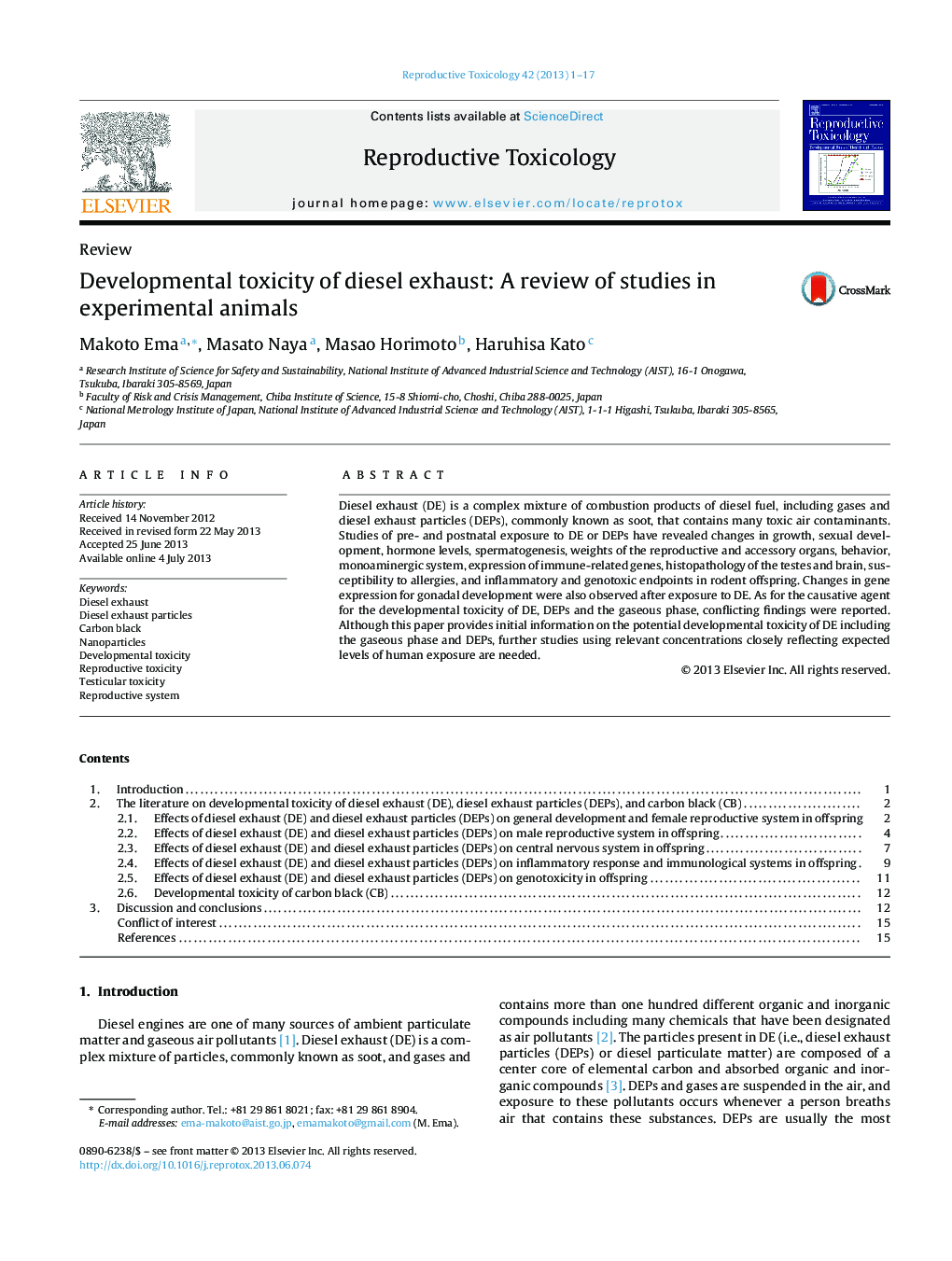| Article ID | Journal | Published Year | Pages | File Type |
|---|---|---|---|---|
| 5858515 | Reproductive Toxicology | 2013 | 17 Pages |
Diesel exhaust (DE) is a complex mixture of combustion products of diesel fuel, including gases and diesel exhaust particles (DEPs), commonly known as soot, that contains many toxic air contaminants. Studies of pre- and postnatal exposure to DE or DEPs have revealed changes in growth, sexual development, hormone levels, spermatogenesis, weights of the reproductive and accessory organs, behavior, monoaminergic system, expression of immune-related genes, histopathology of the testes and brain, susceptibility to allergies, and inflammatory and genotoxic endpoints in rodent offspring. Changes in gene expression for gonadal development were also observed after exposure to DE. As for the causative agent for the developmental toxicity of DE, DEPs and the gaseous phase, conflicting findings were reported. Although this paper provides initial information on the potential developmental toxicity of DE including the gaseous phase and DEPs, further studies using relevant concentrations closely reflecting expected levels of human exposure are needed.
